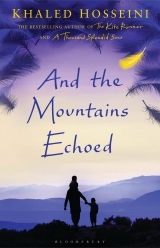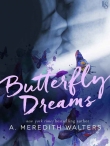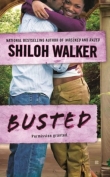
Текст книги "And the Mountains Echoed"
Автор книги: Khaled Hosseini
Жанр:
Современная проза
сообщить о нарушении
Текущая страница: 23 (всего у книги 23 страниц)
I kissed his cheek again later when I rose to leave. I lingered with my face against his, remembering how he used to pick me up from kindergarten and drive us to Denny’s to pick up Mother from work. We would sit at a booth, waiting for Mother to sign out, and I would eat the scoop of ice cream the manager always gave me and I would show Baba the drawings I had made that day. How patiently he gazed at each of them, glowering in careful study, nodding.
Baba smiled his smile.
Ah. I almost forgot.
I stooped down and performed our customary farewell ritual, running my fingertips from his cheeks up to his creased forehead and his temples, over his gray, thinning hair and the scabs of his roughened scalp to behind the ears, plucking along the way all the bad dreams from his head. I opened the invisible sack for him, dropped the nightmares into it, and pulled the drawstrings tight.
There.
Baba made a guttural sound.
Happy dreams, Baba. I’ll see you in two weeks. It occurred to me that we had never been apart for this long before.
As I was walking away, I had the distinct feeling that Baba was watching me. But when I turned to see, his head was down and he was toying with a button on his fidget apron.
Pari is talking about Isabelle and Albert’s house now. She has shown me pictures of it. It is a beautiful, restored Provençal farmhouse made of stone, set up on the Luberon hills, fruit trees and an arbor at the front door outside, terra-cotta tiles and exposed beams inside.
“You could not see in the picture that I showed to you, but it has fantastic view of the Vaucluse Mountains.”
“Are we all going to fit? It’s a lot of people for a farmhouse.”
“Plus on est de fous, plus on rit,”she says. “What is the English? The more the happier?”
“Merrier.”
“Ah voilà. C’est ça.”
“How about the children? Where are they—”
“Pari?”
I look over to her. “Yes?”
She empties her chest of a long breath. “You can give it to me now.”
I nod. I reach into the handbag sitting between my feet.
I suppose I should have found it months ago when I moved Baba to the nursing home. But when I was packing for Baba, I reached in the hallway closet for the top suitcase, from the stack of three, and was able to fit all of Baba’s clothes in it. Then I finally worked up the nerve to clear my parents’ bedroom. I ripped off the old wallpaper, repainted the walls. I moved out their queen-size bed, my mother’s dresser with the oval vanity mirror, cleared the closets of my father’s suits, my mother’s blouses and dresses sheathed in plastic. I made a pile in the garage for a trip or two to Goodwill. I moved my desk to their bedroom, which I use now as my office and as my study when classes begin in the fall. I emptied the chest at the foot of my bed too. In a trash bag, I tossed all my old toys, my childhood dresses, all the sandals and tennis shoes I had outworn. I couldn’t bear to look any longer at the Happy Birthday and Father’s Day and Mother’s Day cards I had made my parents. I couldn’t sleep at night knowing they were there at my feet. It was too painful.
It was when I was clearing the hallway closet, when I pulled out the two remaining suitcases to store them in the garage, that I felt a thump inside one of them. I unzipped the suitcase and found a package inside wrapped with thick brown paper. An envelope had been taped to the package. On it were written, in English, the words For my sister, Pari. Immediately, I recognized Baba’s handwriting from my days working at Abe’s Kabob House when I picked up the food orders he would jot down at the cash register.
I hand the package now to Pari, unopened.
She looks down at it in her lap, running her hands over the words scribbled on the envelope. From across the river, church bells begin to ring. On a rock jutting from the edge of the water, a bird tears at the entrails of a dead fish.
Pari rummages in her purse, digging through its contents. “J’ai oublié mes lunettes,”she says. “I forgot my reading glasses.”
“Do you want me to read it for you?”
She tries to tear the envelope from the package, but today is not a good day for her hands, and, after some struggle, she ends up handing me the package. I free the envelope and open it. I unfold the note tucked inside.
“He wrote it in Farsi.”
“But you can read it, no?” Pari says, her eyebrows knotted with worry. “You can translate.”
“Yes,” I say, feeling a tiny smile inside, grateful—if belatedly—for all the Tuesday afternoons Baba had driven me to Campbell for Farsi classes. I think of him now, ragged and lost, staggering across a desert, the path behind him littered with all the shiny little pieces that life has ripped from him.
I hold the note tightly against the blustering wind. I read for Pari the three scribbled sentences.
They tell me I must wade into waters, where I will soon drown. Before I march in, I leave this on the shore for you. I pray you find it, sister, so you will know what was in my heart as I went under.
There is a date too. August 2007. “August of 2007,” I say. “That’s when he was first diagnosed.” Three years before I had even heard from Pari.
Pari nods, wiping her eyes with the heel of her hand. A young couple rolls by on a tandem bicycle, the girl in the lead—blond, pink-faced, and slim—the boy behind, with dreadlocks and coffee-colored skin. On the grass a few feet away, a teenage girl in a short black leather skirt sits, talking into a cell phone, holding the leash to a tiny charcoal-colored terrier.
Pari hands me the package. I tear it open for her. Inside is an old tin tea box, on its lid a faded picture of a bearded Indian man wearing a long red tunic. He is holding up a steaming cup of tea like an offering. The steam from the teacup has all but faded and the red of the tunic has mostly bleached to pink. I undo the latch and lift the lid. I find the interior stuffed with feathers of all colors, all shapes. Short, dense green feathers; long black-stemmed ones the color of ginger; a peach-colored feather, possibly from a mallard, with a light purple cast; brown feathers with dark blotches along the inner vanes; a green peacock feather with a large eye at the tip of it.
I turn to Pari. “Do you know what this means?”
Chin quivering, Pari slowly shakes her head. She takes the box from me and peers inside it. “No,” she says. “Only that when we lost each other, Abdullah and I, it hurt him much more than me. I was the lucky one because I was protected by my youth. Je pouvais oublier. I still had the luxury of forgetting. He did not.” She lifts a feather, brushes it against her wrist, eyeing it as though hoping it might spring to life and take flight. “I don’t know what this feather means, the story of it, but I know it means he was thinking of me. For all these years. He remembered me.”
I put an arm around her shoulder as she weeps quietly. I watch the sun-washed trees, the river flowing past us and beneath the bridge—the Pont Saint-Bénezet—the bridge the children’s song is about. It’s a half bridge, really, as only four of its original arches remain. It ends midway across the river. Like it reached, tried to reunite with, the other side and fell short.
That night at the hotel, I lie awake in bed and watch the clouds nudging against the big swollen moon hanging in our window. Down below, heels click on the cobblestones. Laughter and chatter. Mopeds rattling past. From the restaurant across the street, the clinking of glasses on trays. The tinkling of a piano meanders up through the window and to my ears.
I turn over and watch Pari sleeping soundlessly beside me. Her face is pale in the light. I see Baba in her face—youthful, hopeful Baba, happy, how he used to be—and I know I will always find him whenever I look at Pari. She is my flesh and blood. And soon I will meet her children, and her children’s children, and my blood courses through them too. I am not alone. A sudden happiness catches me unawares. I feel it trickling into me, and my eyes go liquid with gratitude and hope.
As I watch Pari sleep, I think of the bedtime game Baba and I used to play. The purging of bad dreams, the gift of happy ones. I remember the dream I used to give him. Careful not to wake Pari, I reach across now and gently rest my palm on her brow. I close my own eyes.
It is a sunlit afternoon. They are children once more, brother and sister, young and clear-eyed and sturdy. They are lying in a patch of tall grass in the shade of an apple tree ablaze with flowers. The grass is warm against their backs and the sun on their faces, flickering through the riot of blossoms above. They rest sleepily, contentedly, side by side, his head resting on the ridge of a thick root, hers cushioned by the coat he has folded for her. Through half-lidded eyes, she watches a blackbird perched on a branch. Streams of cool air blow through the leaves and downward.
She turns her face to look at him, her big brother, her ally in all things, but his face is too close and she can’t see the whole of it. Only the dip of his brow, the rise of his nose, the curve of his eyelashes. But she doesn’t mind. She is happy enough to be near him, with him—her brother—and as a nap slowly steals her away, she feels herself engulfed in a wave of absolute calm. She shuts her eyes. Drifts off, untroubled, everything clear, and radiant, and all at once.
Acknowledgments
A couple of logistical matters before I give thanks. The village of Shadbagh is fictional, though it is possible that one by that name exists somewhere in Afghanistan. If so, I have never been to it. Abdullah and Pari’s nursery rhyme, specifically the reference to a “sad little fairy,” was inspired by a poem by the late, great Persian poet Forough Farrokhzad. Finally, the title of this book was inspired in part by William Blake’s lovely poem, “Nurse’s Song.”
I would like to extend my thanks to Bob Barnett and Deneen Howell for being such wonderful guides and advocates for this book. Thank you Helen Heller, David Grossman, Jody Hotchkiss. Thanks to Chandler Crawford, for her enthusiasm, patience, and advice. Many thanks to a host of friends at Riverhead Books: Jynne Martin, Kate Stark, Sarah Stein, Leslie Schwartz, Craig D. Burke, Helen Yentus, and many more I have left unnamed but to whom I am deeply grateful for helping bring this book to readers.
I thank my wonderful copy editor, Tony Davis, who ventures way beyond the call of duty.
Very special gratitude goes out to my editor, the hugely talented Sarah McGrath, for her insight and vision, her gentle guidance, and for helping me shape this book in more ways than I can recall. I’ve never enjoyed the editing process more, Sarah.
Lastly, I thank Susan Petersen Kennedy and Geoffrey Kloske, for their trust and unwavering faith in me and my writing.
Thank you and Tashakorto all my friends and all the people in my family for always being in my corner, and for patiently, gamely, and kindly putting up with me. As ever, I thank my beautiful wife, Roya, not only for reading and editing many incarnations of this book but also for running our day-to-day life, without a whisper of protest, so I could write. Without you, Roya, this book would have died somewhere in the first paragraph of page one. I love you.
Also by Khaled Hosseini
The Kite Runner

Read by over 21 million people worldwide
1970s Afghanistan: Twelve-year-old Amir is desperate to win the local kite-fighting tournament and his loyal friend Hassan promises to help him. But neither of the boys can foresee what will happen to Hassan that afternoon, an event that is to shatter their lives. After the Russians invade and the family is forced to flee to America, Amir realises that one day he must return to an Afghanistan under Taliban rule to find the one thing that his new world cannot grant him: redemption.
‘Unforgettable … extraordinary … powerful’ Isabel Allende
‘A devastating, masterful and painfully honest story’ Daily Telegraph
‘A novel of unusual generosity, honesty and compassion’ Independent
If you have a device with internet capabilities, please click for more information.
A Thousand Splendid Suns

Mariam is only fifteen when she is sent to Kabul to marry Rasheed. Nearly two decades later, a friendship grows between Mariam and a local teenager, Laila, as strong as the ties between mother and daughter. When the Taliban take over, life becomes a desperate struggle against starvation, brutality and fear. Yet love can move a person to act in unexpected ways, and lead them to overcome the most daunting obstacles with a startling heroism.
‘In case you’re wondering whether A Thousand Splendid Sunsis as good as
The Kite Runner, here’s the answer: No. It’s better’
Washington Post
If you have a device with internet capabilities, please click for more information.
If you loved The Kite Runner, why not try:
The Kite Runner Graphic Novel

‘Powerful … full of detail, meaning and significance.
As a visual way in to the novel this is a success’ Paul Gravett
If you have a device with internet capabilities, please click for more information.
For more information about Khaled Hosseini, to download reading guides,
sign up for exclusive offers and find out more about signed, special editions, please visit:
www.bloomsbury.com/khaledhosseini
Bloomsbury Publishing, London, New Delhi, New York and Sydney
Copyright © 2013 by Khaled Hosseini and Roya Hosseini, as Trustees
of The Khaled and Roya Hosseini Family Charitable Remainder
Unitrust No. 2 dated February 29, 2012. All rights reserved.
Epigraph copyright Coleman Barks
First published in Great Britain 2013
This electronic edition published in 2013 by Bloomsbury Publishing Plc
Bloomsbury Publishing Plc
50 Bedford Square
London
WC1B 3DP
The moral right of the author has been asserted
All rights reserved
You may not copy, distribute, transmit, reproduce or otherwise make available this publication (or any part of it) in any form, or by any means (including without limitation electronic, digital, optical, mechanical, photocopying, printing, recording or otherwise), without the prior written permission of the publisher. Any person who does any unauthorised act in relation to this publication may be liable to criminal prosecution and civil claims for damages.
A CIP catalogue record for this book is available from the British Library
eISBN 978-1-4088-4244-7
Visit www.bloomsbury.com to find out more about our authors and their books
You will find extracts, author interviews, author events and you can sign up for newsletters to be the first to hear about our latest releases and special offers








